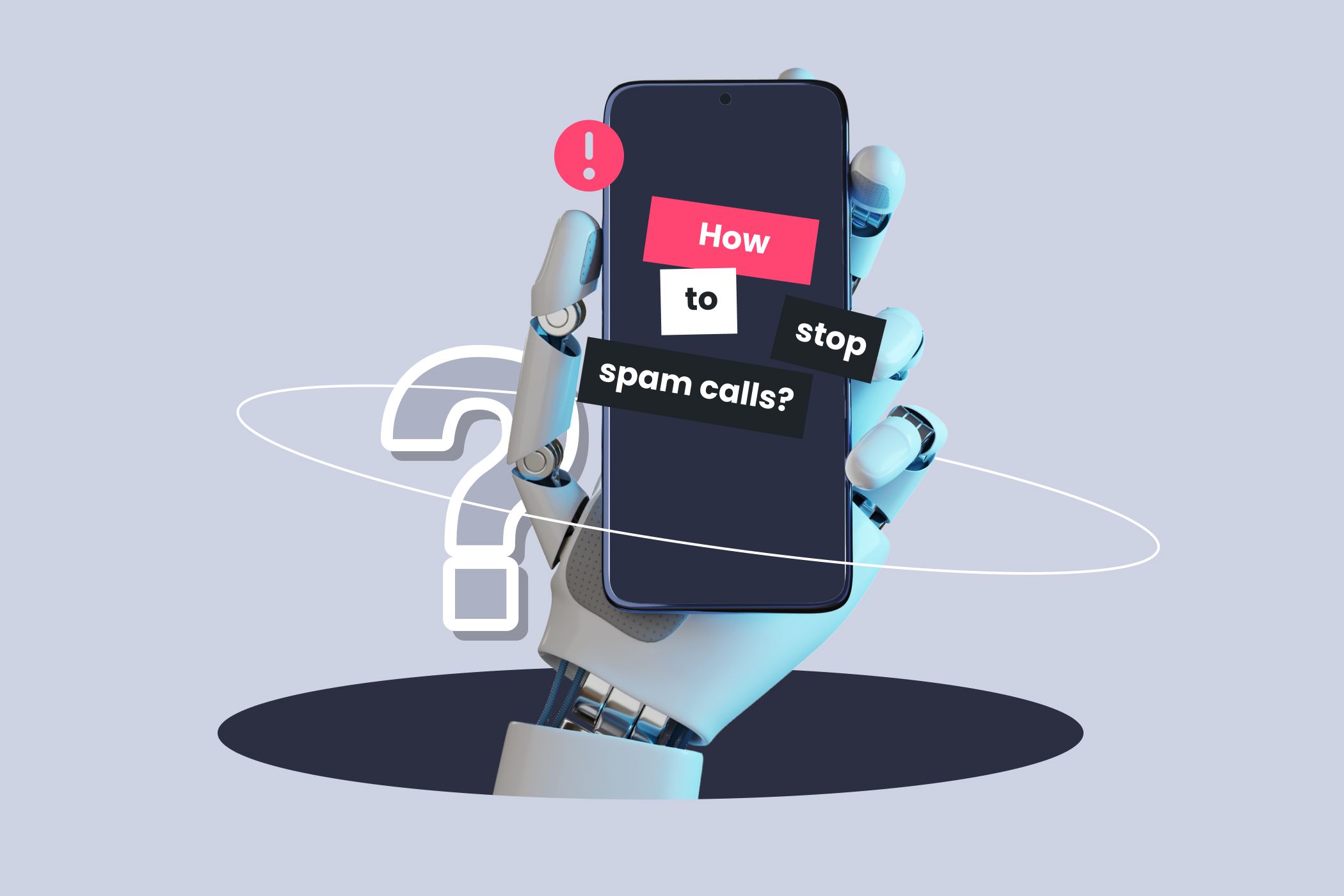One of the clever tricks that scam callers play on us is using a phone number that appears similar to our own. That twinge of familiarity we get upon seeing our area code – or even the first six digits of our phone number – can fool us into thinking that the call is legit, potentially even from a business in our area or someone we know.
We pick up, and then the recorded voice tells us about the shipping fees we owe before we can get our package, or the “free” cruise we just won that needs a deposit, or how we need to hand over our Social Security information to avoid tax penalties.
The scams abound and some of them are getting sophisticated enough that even the sharpest among us are falling prey to fraudulent schemes. The good news is if you want to stop receiving scam calls and protect your personal information, there are steps you can take.
What Are Scam Calls and Data Brokers?
Scam calls, spam text messages, and unwanted junk mail happen when our personal information ends up on online wholesale lists of contact information. Data brokers – aggregators and sellers of personal data – scrape the internet for personal information and compile massive lists that they then sell to the highest bidder, often scammers.
From there, the scammers use the list of numbers as targets in their schemes to defraud people of money and valuable personal information.
Scam calls, a massively popular and successful method used by scammers worldwide, are pre-recorded messages that are trying to extract information from you. Press four to continue. Enter your sixteen-digit credit card number. Email this information to us. Most of us like to think we’re too smart for scammers, but they can be surprisingly convincing.
In fact, it’s estimated that last year alone, nearly 70 million Americans lost money to over-the-phone scams, amounting to $40 billion.
How Do Data Brokers Get Your Information?
If you’ve ever signed up for a customer loyalty program, downloaded an app, used a chatbot, or surrendered any kind of personal information online, chances are that some of it has ended up in the hands of data brokers. Every company that you interact with has a privacy policy, and within some of those policies are the rights to sell or trade your information to and with third parties.
Even information that hasn’t been explicitly and legally sold or traded can be stolen. Companies with iron-clad privacy policies and high-tech security systems have been subject to data breaches, where customer information is stolen or accidentally leaked, leaving you vulnerable to the scammers who get their hands on that info.
Once your information is out there, there is a way to erase it and mitigate your risk of being scammed or defrauded.
How to Stop Data Brokers From Getting Your Information and Put a Stop to Scam Calls
As a first step, everyone who is not interested in receiving calls from telemarketers should register their phone number with the Federal Trade Commission’s National Do Not Call Registry. In doing so, you can avoid a large swath of unwanted calls. Plus, after your number is on their list, you then have the ability to report further unwanted sales calls and scam calls to the FTC.
Although legitimate businesses abide by the rules set out by the FTC, scammers operate on a different playing field. Adding yourself to the Do Not Call Registry is just one step you’ll need to take.
If you answer a scam call, it’s crucial to hang up immediately without pressing any buttons – even if they ask you to press a button to stop receiving calls – and block that number. Although many calls come from spoofed numbers that change each time, you can still eliminate calls from repeat offenders.
Once you’ve blocked any scammers that you can and added your phone number to the FTC’s registry, it’s time to wipe the internet of your information. Online-privacy service Incogni targets all the places where your personal information lives online, such as data brokers’ databases, people search sites, marketing firms, and more.
By signing up for an Incogni subscription, your personal data will be wiped from the shady corners of the internet and prevent third parties from selling your information. Incogni estimates that it would take the average person about 304 hours to complete all the data-removal requests needed to secure their privacy, whereas its services perform these functions for you automatically.
Incogni also provides continuous peace of mind by sending recurring requests to delete your personal information from 170 data broker databases. So even if more of your info makes its way out there, it will be removed before scammers can take action with it.
Get an Exclusive Discount on an Incogni Subscription
If you want to take control of your privacy and reduce the chance of being subject to scams, check out an Incogni subscription for continuous protection throughout the year. HowToGeek readers can get an exclusive discount on Incogni’s annual plans with the code GEEK55 to get 55% off an Incogni subscription.
What are you waiting for? Sign up for the world's most popular personal data removal service (according to Google Trends data) and start protecting yourself today.
This is a sponsored post. The product choices and opinions expressed in this article are from the sponsor and do not reflect the editorial direction of How-To Geek or its staff.
